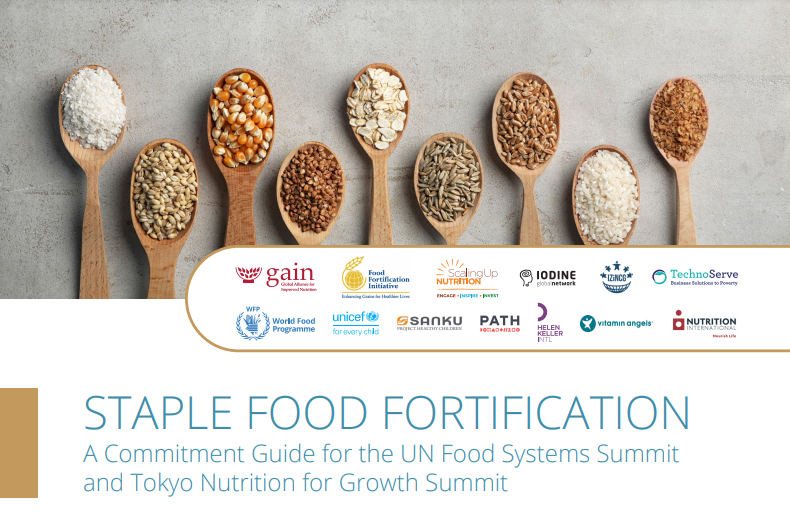FFI proposes regional food fortification initiative to combat micronutrient deficiencies and improve health outcomes across 21 Pacific Island nations.
Read MoreThe Malaysia Ministry of Health (MOH) demonstrated renewed dedication in 2022 to scale up and strengthen wheat flour fortification.
Read MoreFFI technical experts have been key to building a robust wheat flour and rice fortification program for the Solomon Islands.
Read MoreIn July 2021, New Zealand mandated that all non-organic wheat flour be fortified with folic acid within the next two years.
Read MoreAhead of the UN Food Systems Summit, UN Climate Change Conference (COP26), and Tokyo Nutrition for Growth (N4G) Summit, FFI joined a range of food fortification experts to call on national governments, the private sector and donors to commit to fortification.
Read MoreUsing varied study designs (none of which can confirm causality), a recently published analysis found that after wheat flour fortification was implemented at large scale in countries, many health outcomes were improved.
Read MoreAs COVID-19 pressed pause on fortification activities in the region, the Solomon Islands maintained implementation and monitoring of its new rice fortification standard.
Read MoreStalled advocacy efforts in the Philippines were reinvigorated with the help of a new partner—Effective Altruism (EA) Philippines.
Read MoreWheat flour fortification has been mandatory in Indonesia since 2001. However, due to reports of difficulties procuring fortification premix during the COVID-19 pandemic, the Government of Indonesia suspended mandatory fortification in 2020.
Read MoreFrom January to February 2020, FFI, in collaboration with Nutrition International (NI), undertook a scoping study to assess the opportunity for fortifying wheat flour in Bangladesh.
Read MoreHalf of the countries that fortify maize and wheat flours with iron, zinc and vitamin B12 may need to update their standards to meet the World Health Organization’s (WHO) current recommendations, according to a recent study published in Food Policy.
Read MoreTo prevent a rise in malnutrition as a result of the pandemic, countries need to maintain food systems and support large-scale interventions like the fortification of staple foods. The frontline of every country’s health system are the immune systems of its people.
Read MoreSince 2015, FFI has worked closely with the Government of Solomon Islands and industry to plan, implement, and monitor the country’s first wheat flour and rice fortification programs.
Read MoreThe John D. and Catherine T. MacArthur Foundation today unveiled the Food Fortification Initiative (FFI) and its partners’ proposal as one of the highest-scoring proposals, designated as the Top 100, in its 100&Change competition for a single $100 million grant to help solve one of the world's most critical social challenges.
Read MoreA Cochrane systematic review on the benefits and safety of fortifying wheat or maize flour with folic acid and population health outcomes, led by scientists in the Division of Nutritional Sciences at Cornell, found that fortification with folic acid (the synthetic form of folate) may improve folate status and reduce the occurrence of neural tube defects.
Read MoreThe first shipment of fortified, imported rice arrived in Solomon Islands in June. “This will help prevent the adverse effects of nutritional deficiencies such as impaired cognitive development, low immunity, and birth defects of the spine and brain," said the Ministry of Health and Medical Services Permanent Secretary Pauline McNeil.
Read MoreTo prevent a rise in malnutrition as a result of the pandemic, countries need to maintain food systems and support large-scale interventions like the fortification of staple foods. The frontline of every country’s health system are the immune systems of its people.
Read More

















